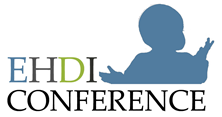| ABSTRACT INFORMATION |
| Presenter Information: |
| Presenter 1: |
Name: Allison Sedey
Affiliation:
Allison Sedey is a speech pathologist, audiologist, and research associate. She works for the University of Colorado-Boulder and the Colorado School for the Deaf and the Blind tracking speech and language outcomes for children who are deaf or hard of hearing between birth and 7 years of age throughout the state of Colorado. She is currently managing a new project that involves establishing a national database of speech and language outcomes for children with hearing loss from birth to 3. As part of this project she is assisting interested states in implementing statewide outcomes assessment.
|
| Presenter 2: |
Name: Elizabeth Seeliger
Affiliation:
Elizabeth Seeliger has worked as a clinical audiologist in a variety of settings, guiding children and families through the process of screening, diagnosis and intervention of hearing loss. She is now the Wisconsin Sound Beginnings (WSB) Program Director. As the Director of the Wisconsin EHDI Program, Elizabeth has played a leadership role in the development of a data, tracking and referral system, developed educational resources for hospitals, audiologists, and families, facilitated the development of a comprehensive guide for providers, and an interactive notebook for parents. Elizabeth has also spearheaded the initiative to enable WI homebirth midwives to provide UNHS. Elizabeth sits on the board of directors for both the WI and National Chapters of Families for Hands & Voices, and the Directors of Speech and Hearing Programs in the State Health and Welfare Agencies (DSHPSHWA).
|
|
| Author Information: |
| Author 1: |
Name: Allison Sedey
Affiliation: University of Colorado-Boulder
|
| Author 2: |
Name: Christine Yoshinaga-Itano
Affiliation: University of Colorado-Boulder
|
| Author 3: |
Name: Elizabeth Seeliger
Affiliation: Wisconsin Sound Beginnings
|
| Author 4: |
Name: Barbara Schrag
Affiliation: Arizona State Schools for the Deaf and the Blind
|
| Author 5: |
Name: Kathryn Kreimeyer
Affiliation: University of Arizona
|
|
| Abstract Information: |
| Title: |
Examining Language Outcomes at the National Level |
| Primary Track: |
3-Early Intervention
|
| Keyword(s): |
national database, outcomes, accountability, assessment |
Abstract: |
Several years ago, six western states began to collect common demographic, general development, and language data on a subset of children in each state who are deaf or hard-of-hearing children receiving early intervention services. A grant recently awarded by the Centers for Disease Control has allowed for an expansion of this project to include other interested states.
By using a common set of assessment tools, states can contribute to a national outcomes database that will provide much-needed data on the progress of a large group of young children who are deaf or hard of hearing with varying characteristics. This database will allow us to characterize the language strengths and weaknesses of children with hearing loss and identify factors that are predictive of more successful language outcomes.
The aggregate results of this assessment can be used to evaluate an intervention program as a whole, guide program development, and inform professional preparation needs. The results for individual children allow parents and interventionists to monitor a child’s progress over time and identify potential delays at their onset. Additionally, results from the assessment data can be used to generate IFSP/IEP goals and to provide a data-driven approach to educational programming decisions.
This presentation will include a description of the national outcomes project providing information about how to join the project. Benefits and obstacles to participation will be discussed by a program director from a state that is experienced with this assessment as well as one new to the process.
In addition to describing the project, language data obtained to date will be presented. In particular, language growth will be examined in a group of children who have been assessed on multiple occasions over time. Additionally, demographic and intervention characteristics will be examined in terms of how they predict more or less successful language outcomes. |
| Presentation(s): |
Not Available
|
| Handouts: |
Not Available
|
|

